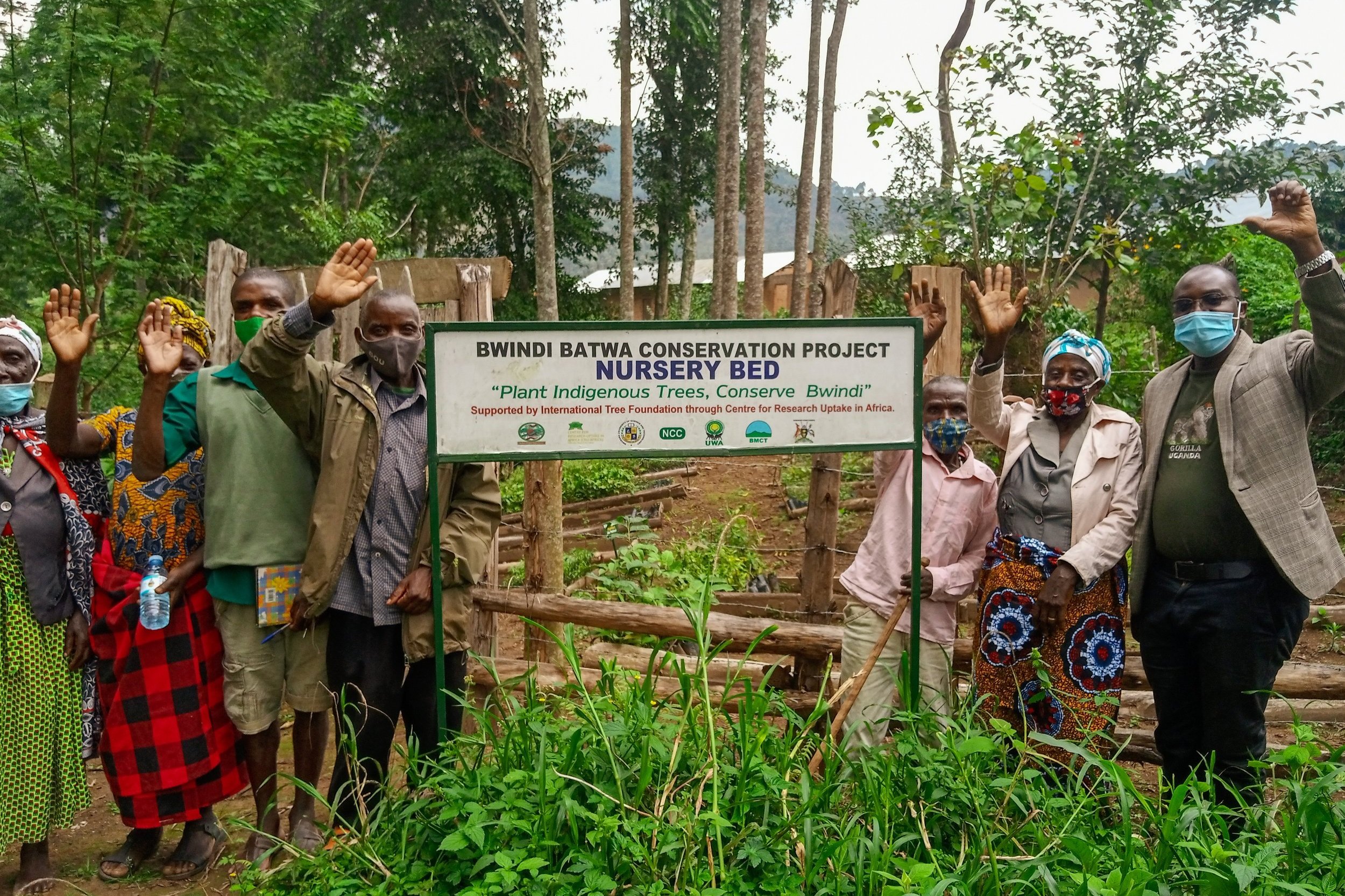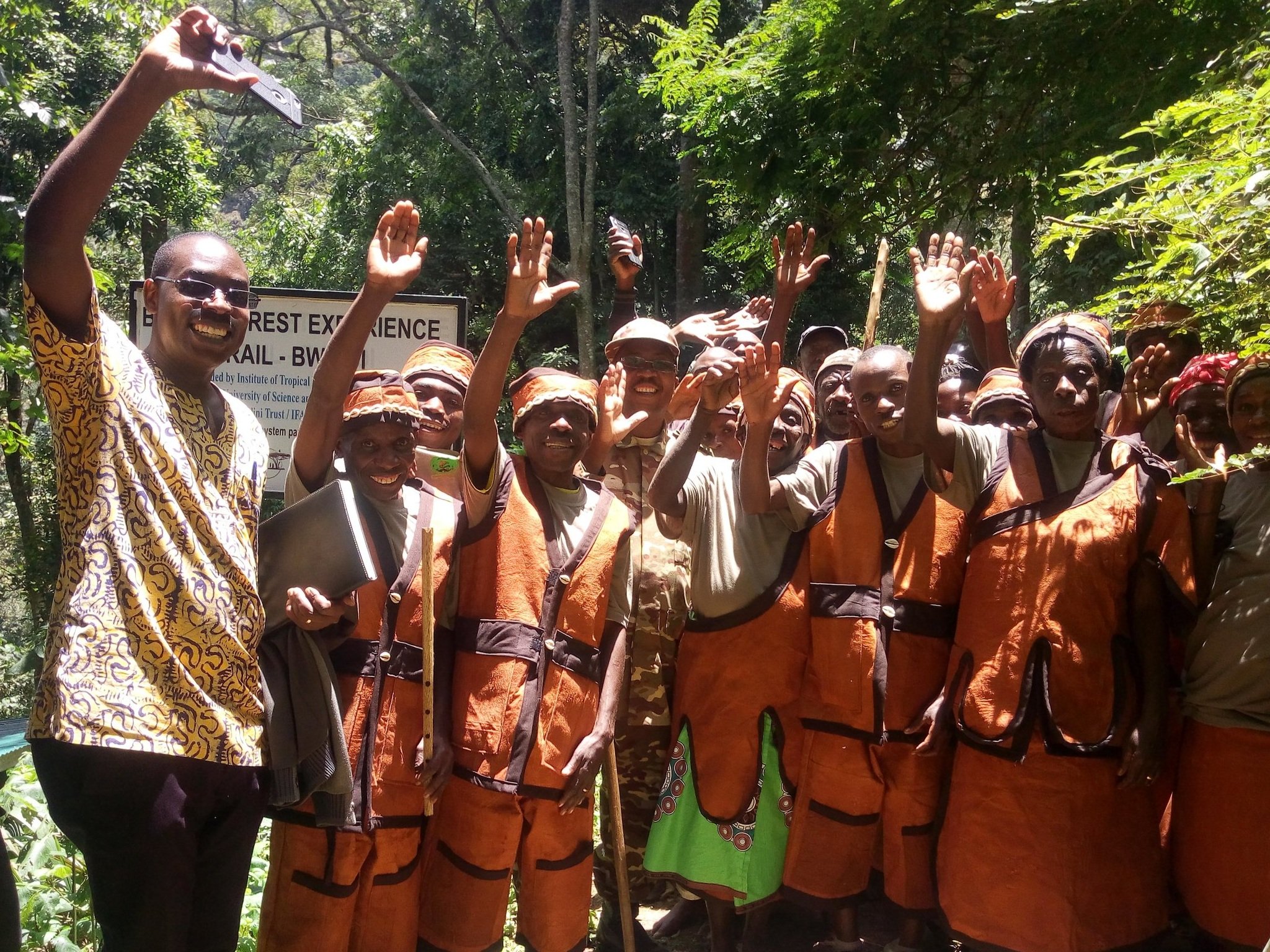Reforesting Bwindi Impenetrable National Park
Known for its exceptional biodiversity Bwindi Impenetrable National Park is found in south-western Uganda.
But over the years, this region has suffered from major deforestation through illegal logging, to the point that in some places most of the indigenous trees have been lost. Together with our partner, the Centre for Research Uptake in Africa, we are engaging the local Batwa community in a vital forest restoration project.
The project has planted 12,538 trees since 2020, with over 350 community members getting involved.
James Tibemanya is part of the local Batwa community, a marginalised group and the original inhabitants of Bwindi Impenetrable Forest. James is part of our project to plant indigenous trees to help conserve Bwindi.
“I was motivated to participate in this project because of its focus on indigenous trees that used to be our medicine, food and livelihood sources when we were still living in the forest,” said James. “The training has equipped me with knowledge and skills of planting trees which I did not have. For us Batwa we knew trees grow by themselves but we now see the purpose of planting trees using our own hands. This makes us love them more and manage them well. I feel refreshed and reconnected to my natural world because of planting indigenous trees.”
Eric Tumuheirwe
Eric Tumuheirwe, who is also a part of the project, said, “We had missed out on the species which provide medicine, food, honey and weaving materials which were very important in our lives. The project is working through the Batwa people to plant trees, restore the forest and provide vital community resources. Not only is the project helping them to once again have a role in forest management, the tree nurseries are also helping to provide sustainable livelihoods.”
Eric Tumuheirwe, “I am so happy that we can access the park and collect resources like seedlings of indigenous trees in our community and I am happy that we now relate well with the community and park management unlike the times when Batwa were always looked at as poachers and criminals. We have enjoyed tree planting and maintenance because these resources are of great importance to us and to the coming Batwa generations.”
Trees are vital for our planet. They provide oxygen, protect wildlife and help to mitigate the devastating effects of the climate crisis. Trees are also vital for people, providing essential food, medicines and sustainable livelihoods.
But it’s not just about planting trees, we need to ensure they survive if they are to benefit both people and planet.
That’s why we have a holistic approach that empowers communities at the forefront of the climate crisis to plant trees that thrive in their landscape while providing vital community resources, creating a lasting impact for people and the planet.
Lydia Natukunda
“Before we were allowed to access park resources, we did not care about the park but now we can protect it. Even when we are collecting the resources, we collect with caution since we are now friends with the park. There is a big connection between the park and us because we benefit from it and it also benefits us. I am happy that we no longer get arrested because of illegal acts in the park but rather we are engaged in the park management meetings.” Lydia Natukunda, aged 78, Bubaare.
Donate today
Create a lasting impact for people and planet, plant a tree today.





